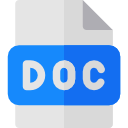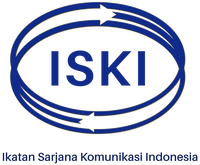KONSTRUKSI SOSIAL PERAN PEMUKA AGAMA DALAM MENCIPTAKAN KOHESIVITAS KOMUNIKASI SOSIAL DI KOTA MATARAM
DOI:
https://doi.org/10.31315/jik.v6i1.34Keywords:
social constructions, cohesivity, relegions people hold.Abstract
Divergency of believing in God gets impact on existing of beliefs & Relegions. This bring a Conssequency of culture (Values, norms, behavior) among differnt believers. That divergency born some fritions or coflient between different community in interaction, the outstanding relegions people hold important role in creating cohesivity among different community. This reseach purpose to explore how the outstanding relegion people in two villages construct their role in creating social communication cohesivity between Hindus & moslems in Cakranegara village & Karang Taliwang Village in Mataram City.References
Crosby, P., 1996, The Absolutes of Leadership. San Francisco. Jossey-Bass Publisher.
Basuki / Isbandi Konstruksi Sosial Peran Pemuka Agama Jurnal Ilmu K 24 omunikasi, Volume 6, Nomor 2, Mei - Agustus 2008
Drucker, P.T., 1996, Foreward. Dalam The Leader of The Future. New York. The Drucker Foundation.
Fiedler, F.E., 1967, A Theory f Leadership Effectiveness. New York. McGraw-Hill.
Hesselbein, F., Goldsmith, M., dan Beckhard, R., 1996, The Leader of The Future. New York. The Drucker Foundation.
Moleong, Lexy J., 1998, Metode Penelitian Kualitatif, PT Remaja Rosdakarya, Bandung.
Mulyana, Deddy, 2002, Metode Penelitian Kualitatif, Remaja Rosdakarya, Bandung.
Stogdill, R.M., 1974, Handbook of Leadership. A Survey of Theory and Research. New York. The Free Press
Sutopo, HB, 2002, Metode Penelitian Kualitatif, Universitas Negeri Sebelas Maret Press, Surakarta.
Titid I. M., 2006, Veda (Sabda Suci) Pedoman Praktis Kehidupan, Paramita, Surabaya
Departemen Ilmu Komunikasi FISIP UI, 2004, Jurnal Penelitian Ilmu Komunikasi (Volume III/No.2 Mei-Agustus 2004)
Downloads
Published
Issue
Section
License
Authors who publish articles in this journal agree to the following terms:
- Copyright remains with the author and gives rights to the Jurnal Ilmu Komunikasi as the priority to publish the article with an Creative Commons Atribusi 4.0 Internasional License, which allows the article to be shared with acknowledgment of the author of the article and this journal as the place of publication.
- Authors can distribute the publication of their articles on a non-exclusive basis (for example: on university repositories or books) with notification or acknowledgment of publication in the journal Option
- Authors are allowed to post their work online (for example: on personal websites or in university repositories) before and after the submission process (see The Effect of Open Access)
Jurnal Ilmu Komunikasi is licensed under a Creative Commons Atribusi 4.0 Internasional License.










